Had Najib Razak won the 14th general election on May 9th, his first foreign visit will most likely be China. He would go there and brag how his Barisan Nasional coalition government had used President Xi Jinping photo on campaign billboard. He would offer Xi to restart the stalled “Bandar Malaysia” project in exchange for kickbacks, and sell more national treasure to China.
Yes, as revealed by the new government, the Najib regime had “secretly” used taxpayers’ money to bail out 1MDB since April 2017 to the tune of RM6.98 billion, and counting. And he would certainly continue to sell more strategic assets to China. The revelation that Malaysia has breached the RM1 trillion in debts confirms the country was on the brink of bankruptcy.
Judging by how the defiant Najib continues to twist and deny about the RM1 trillion debt and 1MDB bailout, it’s safe to presume the mad son of Razak would most likely continue to borrow and hide the debts using creative accounting – had he won on May 9th. Unfortunately to the ex-prime minister, his lucky number didn’t work and his wife’s black magic had failed spectacularly.
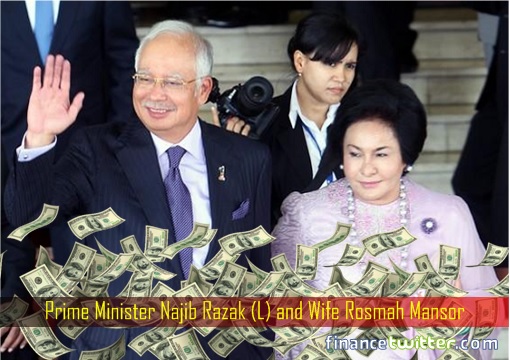
While the new government is trying to fix the financial havoc left by the previous government, where the ex-PM Najib helped himself to the national coffers as if they were his personal piggie bank, there’s one problem that has gotten Mahathir cracking his 93-year-old head – China. Between the corrupted Najib and the no-nonsense Mahathir, the choice isn’t hard for Beijing.
As China aggressively grows its influence in its backyard and worldwide, a greedy and corrupt scumbag like Najib is what the Middle Kingdom desires. Najib can be controlled and become China’s puppet. But with Mahathir, a man who doesn’t fancy women, let alone hungry for money, Beijing will be having problem transforming Malaysia as its obedient puppet against the United States in the region.
However, at the same time, Mahathir – world’s oldest prime minister – cannot afford to offend China. What the world’s second largest economic powerhouse needs to do to give a hard time to the newly installed prime minister is to stop importing palm oil from Malaysia. When the palm oil prices plunge, the Felda settlers, mostly ethnic-Malay, would be sharpening their knives for Mahathir’s head.
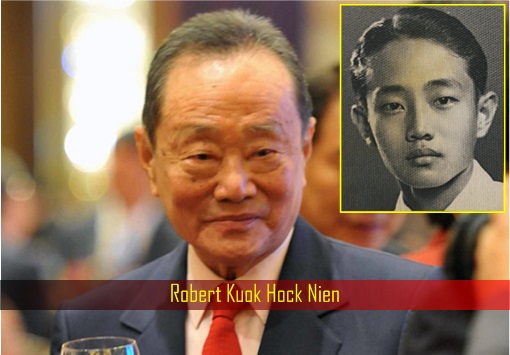
That was why Malaysia’s richest man – Robert Kuok – was invited to be one of five members of a special advisory council, which Mahathir called the “council of the elders”. Kuok was chosen because of his special relationship with Beijing, including President Xi Jinping. It is hoped that Kuok could facilitate projects re-negotiation between Kuala Lumpur-Beijing.
Still, like other countries being trapped in the so-called China’s OBOR (One Belt One Road) flagship project, Malaysia owes huge debts thanks to Najib Razak. Based on data compiled by “This Week in Asia” from 11 high-profiles, controversial projects signed during the Najib administration was in the region of US$134 billion worth of Chinese investment.
Those projects, involving 13 Chinese companies and financial institutions, range from real estate development to infrastructure construction and large-scale industrial plants. Most of them were signed in the last 5 years and remain under construction. One of them includes the ongoing East Coast Railway Link (ECRL), a wasteful project where the cost has been inflated to RM55 billion.
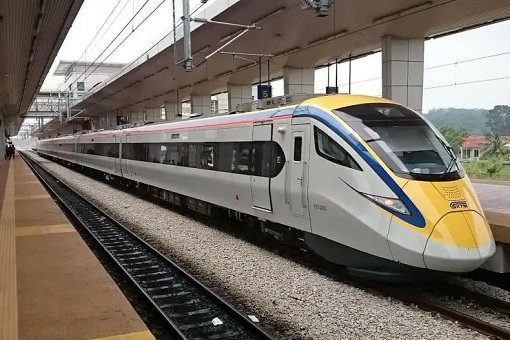
About 85% of the ECRL railway project is financed by Chinese soft loans from China Exim Bank. Mahathir has clarified that while he’s not anti-China, his administration is indeed against the huge borrowing. Sure, Mahathir can, with helps from Robert Kuok, renegotiate the terms of projects such as ECRL. But it is unlikely to be terminated. China won’t allow it to happen, for obvious reason.
Costing RM55 billion at its initial first phase, the ECRL is expected to cost taxpayers RM92 billion by the time it paid off its due interest. The second phase would cost another RM11 billion. The contract for the ECRL was obviously “strange” – the terms state that the contractor must be from China while the borrowings of RM55 billion to fund the project must also come from the country.
Enter Japan – Mahathir Mohamad’s first foreign destination. Scheduled to take place on June 11-12, the Malaysian 7th prime minister will attend the annual Nikkei Conference and is expected to rub shoulders with Japan Prime Minister Shinzo Abe, whom called Mahathir on May 24 to specifically congratulate him on the formation of the new government.
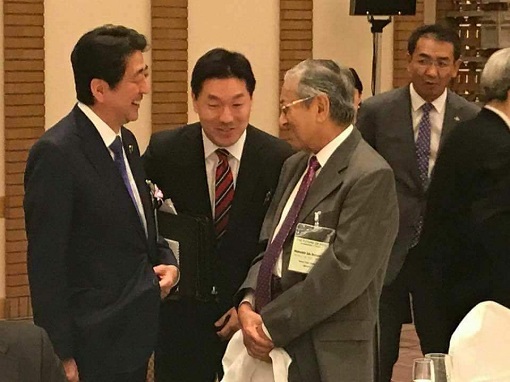
The relationship between Mahathir and Japan went as far back as 1981 when the Malaysian premier promoted “Look East” policy. The policy was mooted to encourage Malaysian students in Japan to bring back knowledge and acquire Japanese cultural virtues such as work ethics, discipline and punctuality – in addition for Japan’s assistance in Malaysia’s development.
This time, Mahathir, making a comeback after ruled for 22 years (1981 to 2003), is expected to request for assistance not only to reduce the huge borrowings but also to seek investments to boost Malaysia’s economy and to instil investors’ confidence. And Japan will gladly help in whatever way possible as the Japanese is fast losing its shine among Southeast Asian countries.
Tokyo has suffered a series of foreign policy setbacks in the region as an increasing number of ASEAN (Association of Southeast Asian Nations) members began gravitating toward China’s enormous and fast growing economy. Besides former Singapore Prime Minister Lee Kuan Yew, Mahathir is the only leader who had refused to “kow-tow” to powerful nation such as China.
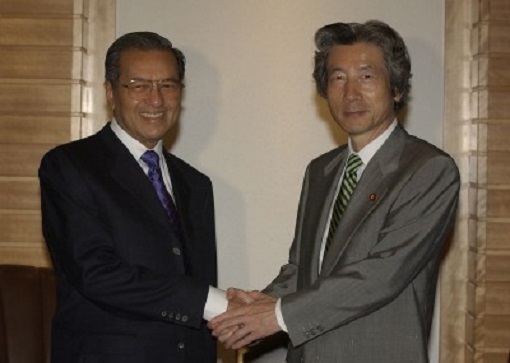
More importantly, Mahathir’s revisit of his “Look East” policy is a strategic move to send a message to China – that Malaysia has other wealthy friends such as Japan. And guess which country that China hates the most in the region. Yes, it’s none other than the Japanese. Most of ASEAN countries have been charmed by China’s deep pocket.
Despite his advanced age, Mahathir’s aura cannot and should not be underestimated. After all, not a single foreign country had predicted the stunning victory of the old man. Therefore, Mahathir’s visit and comments in Japan will be closely watched and scrutinized. He could share his critical view about China’s naval expansion in the South China Sea.
Mahathir could probably use the platform in Japan to tell China that unlike the disgraced Najib Razak, he is not ready to bend over in exchange for kickbacks. That Mahathir cannot be bribed and refused to be controlled will make China more than willing to re-negotiate the present lopsided projects not favourable to the Malaysian people.
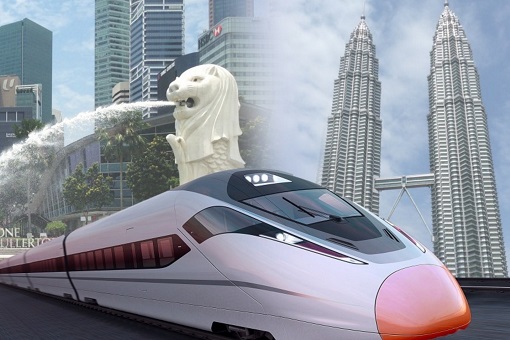
In the same breath, PM Mahathir might drop the Singapore-Kuala Lumpur high-speed rail (HSR) project, although the 350-km rail deal between Singapore and Malaysia had been inked in 2016 under the previous PM Najib Razak. Already, the new Malaysian government is studying how much they need to pay in the event the RM100 billion “wasteful and unnecessary” HSR project is scrapped entirely.
However, one cannot underestimate whether this is one of Mahathir’s negotiation tactics to force Singapore and China to submit to his demands. Mahathir may threaten to drag Singapore to international court to arbitrate if the terms of the HSR project are too heavily weighted in one party’s favour, which in this case is Singapore, of course.
Despite scoring high marks on Corruption Perceptions Index, Singapore isn’t as clean as many think. It wasn’t until the F.B.I opened investigation papers and Switzerland dropped the bombshell that a criminal investigation into 1MDB had revealed that about US$4 billion appeared to have been misappropriated from Malaysian state companies, that Singapore was forced to act in early 2016.
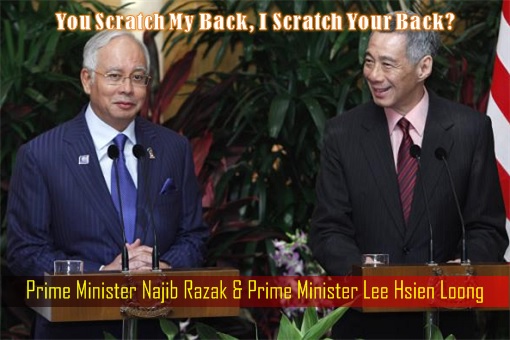
Therefore, Mahathir could use HSR project to paint Singapore as a crook working together with Najib. One way or another, Singapore had aided Najib steal and stash billions in the island. That was why an hour after Singapore Prime Minister Lee Hsien Loong left Mahathir’s office, embarrassingly, it was announced that all bilateral deals signed by ex-PM Najib Razak has to be re-looked at.
Even if Mahathir cannot cancel the HSR project, bringing Japan to the table could send shivers down China’s spine. With over US$134 billion worth of investment, China will do anything to secure their investment and influence in the country. And the Chinese definitely do not want Malaysia to side with Singapore, let alone Japan, in any dispute with them.
Beijing considers Singapore as a proxy of the U.S., hence both countries doesn’t see eye to eye. Likewise, Singapore doesn’t want to see China hardware in their backyard. It becomes merrier when the Japanese are thrown into the party, either as new banker or new player. Mahathir will definitely squeeze something juicy from his visit to Japan.
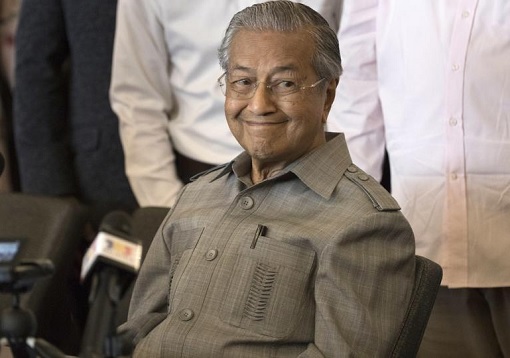
Other Articles That May Interest You …
- Taxpayers’ Money Secretly Used To Bailout 1MDB – Here’s Why Snake Oil Salesman Arul Should Be Jailed
- This Chart Shows How Najib Drove The Country To RM1 Trillion In Debt
- Why The Hell Didn’t Crooks Najib And Rosmah Flee Instantly After They Lost The Election?
- Chinese Flag Raised At Sri Lanka Port Raises Concern Of China Secret Naval Base
- This Chart Shows How US-DOJ Links Auntie Rosie To A $27-Million Pink Diamond
- No Deal For Bad Deal – Here’s Why China Pulls Plug On Bandar Malaysia
- Swiss A.G. – Najib’s 1MDB Scammed At Least $800 Million Using “Ponzi Scheme”
- Bandar Malaysia Has Become “Bandar China” – The U.S. & Malays Conned By Najib
- What Took You So Long, Singapore? Trying To Cover Najib’s 1MDB Scandal?

|
|
May 27th, 2018 by financetwitter
|


|

|

|

|

|

|




























Loved this article. The authors behind this news portal simply outsmarts a lot of Malaysians like me. These people are what we exactly needed to provide us insights like these.